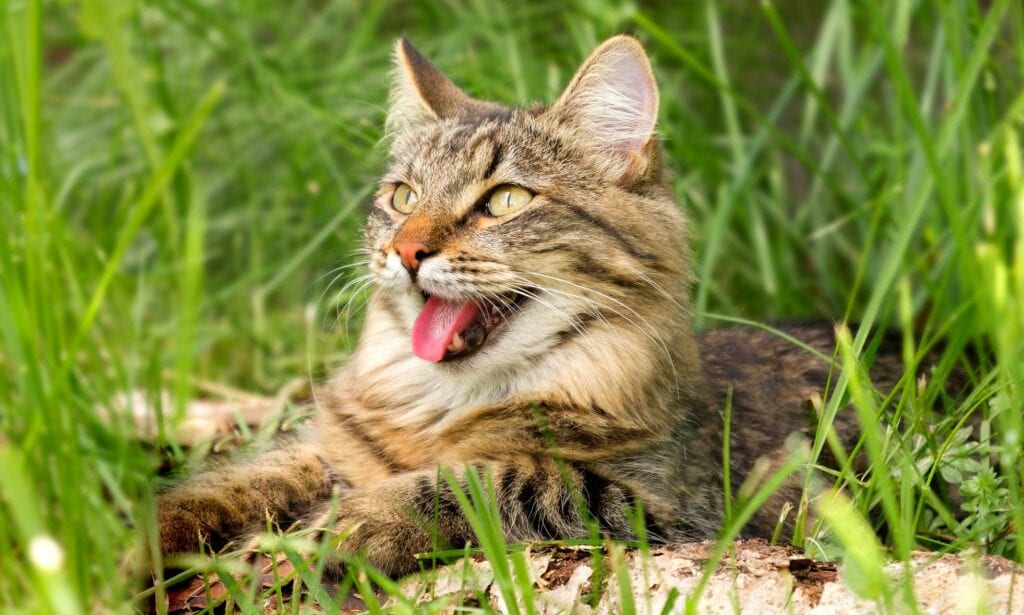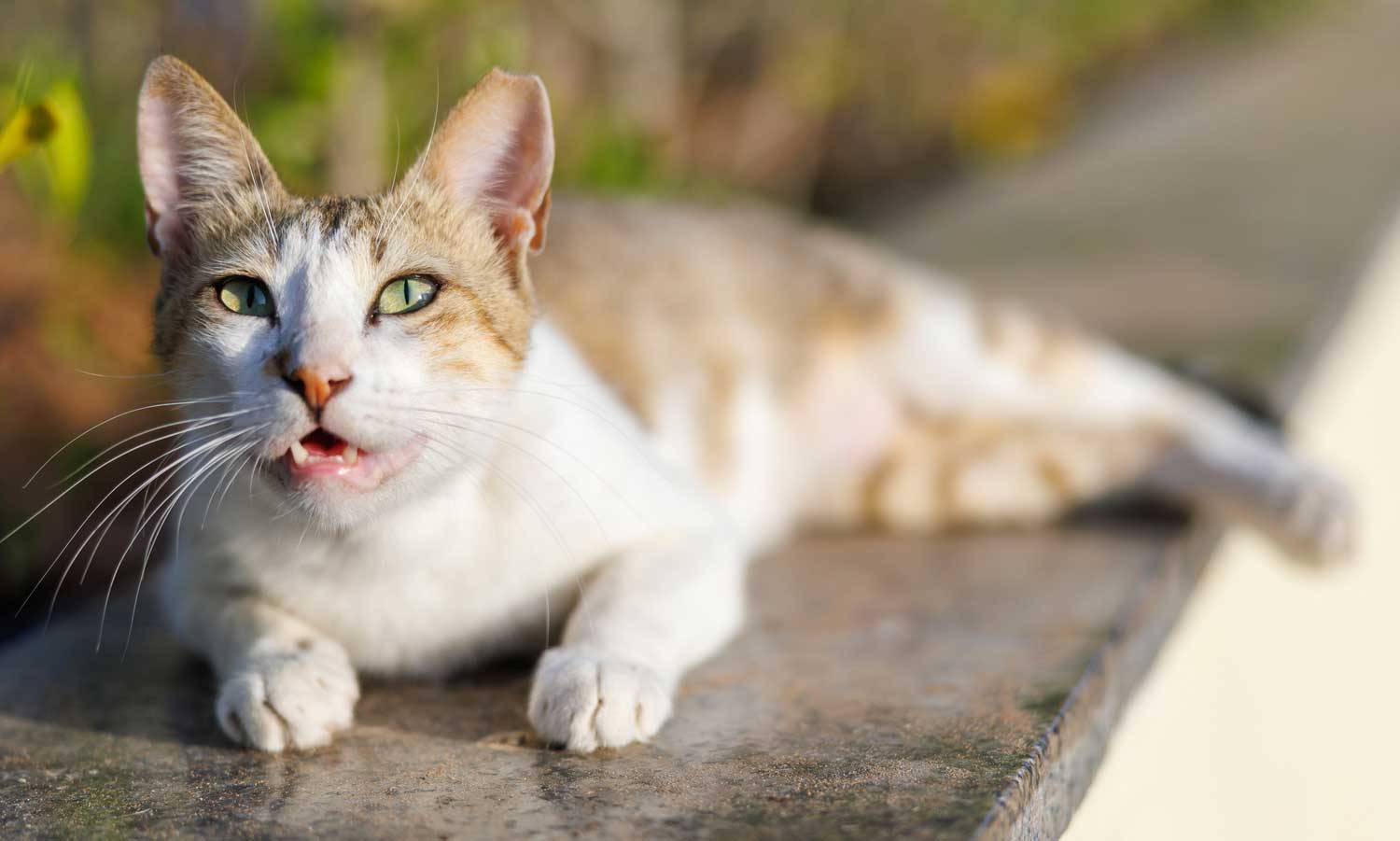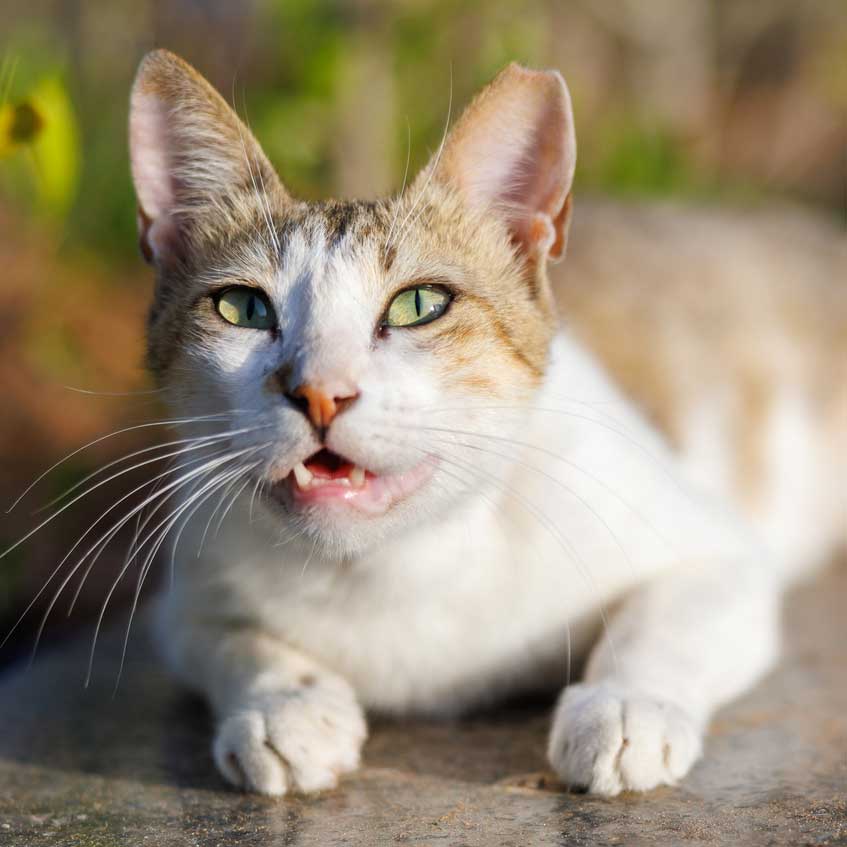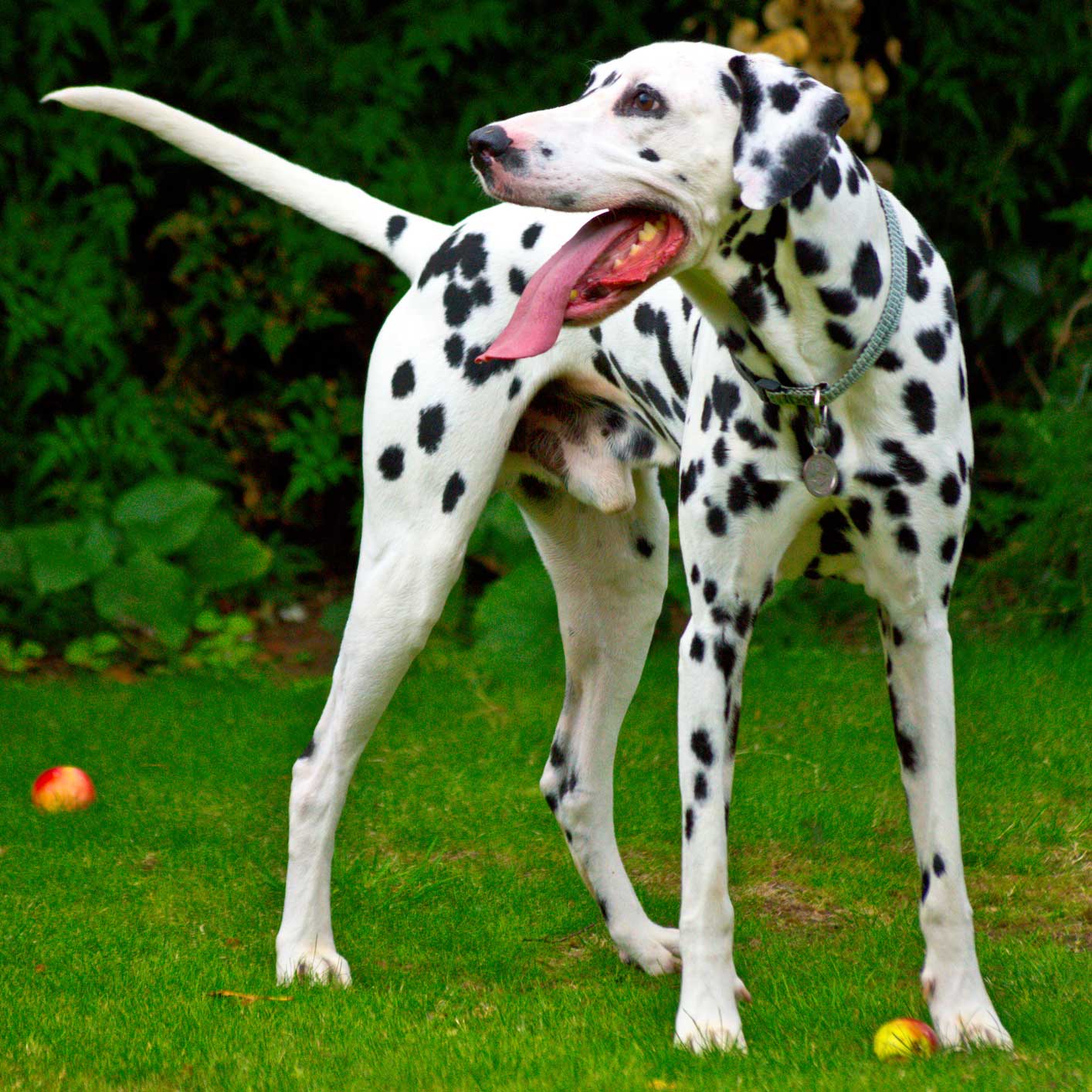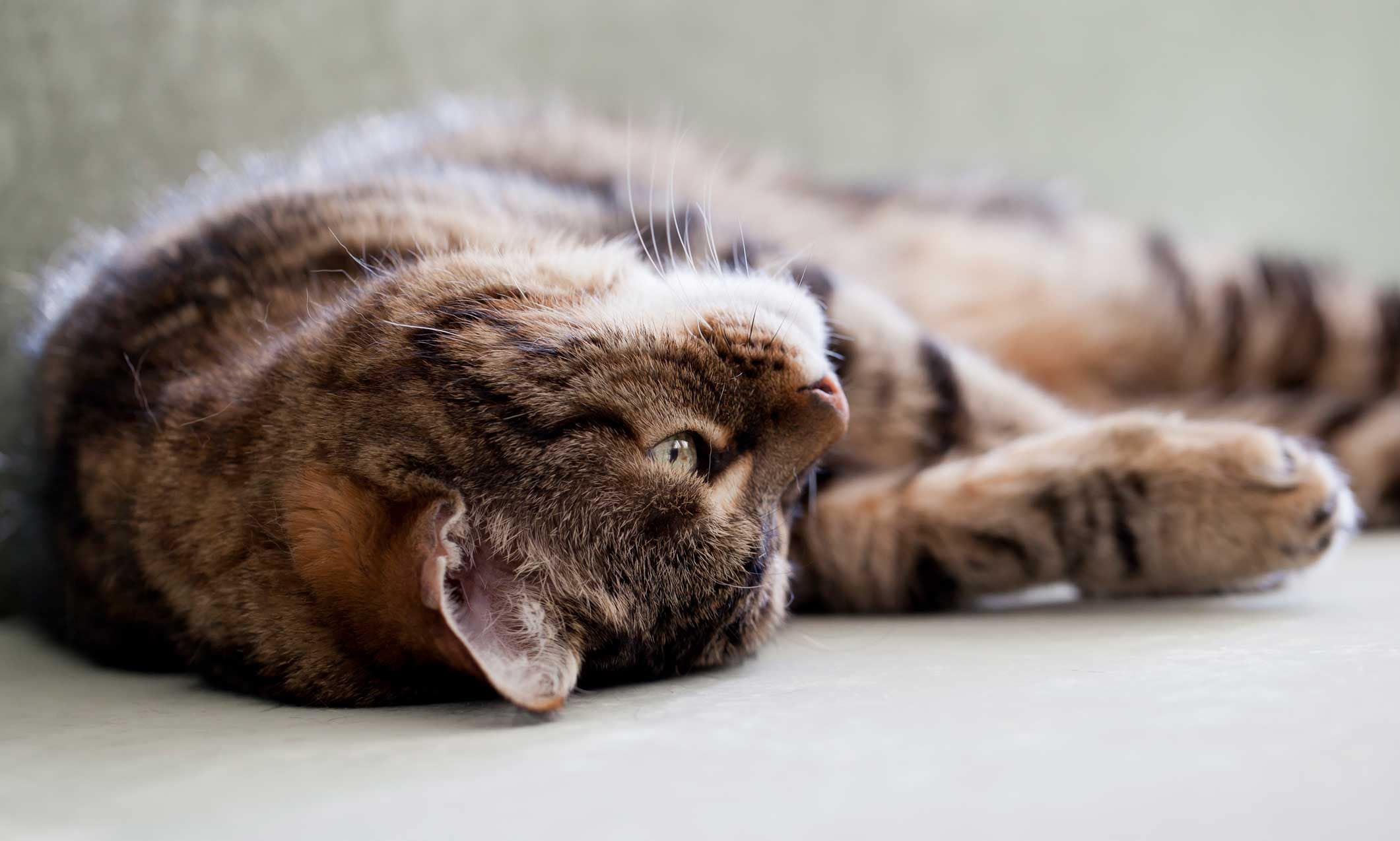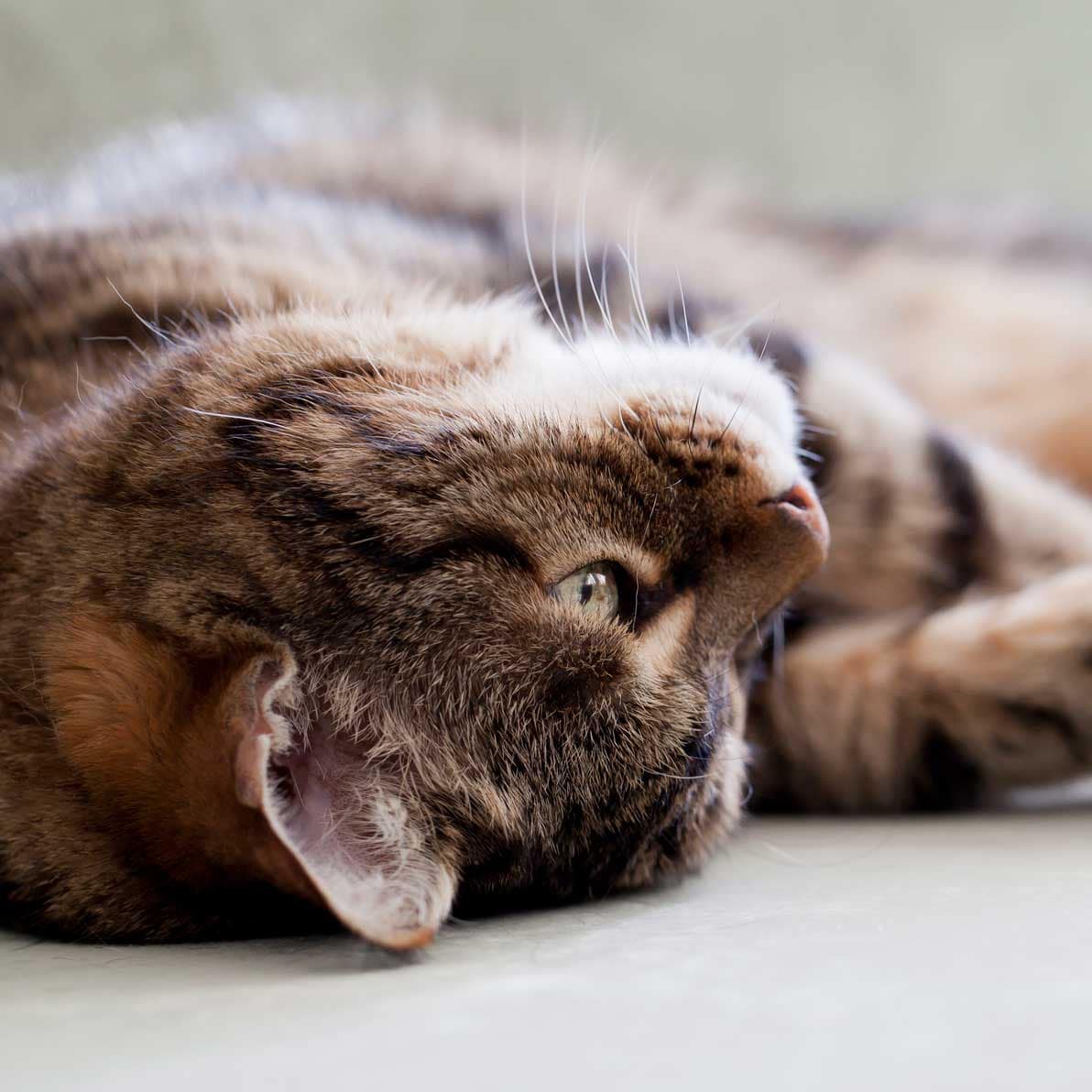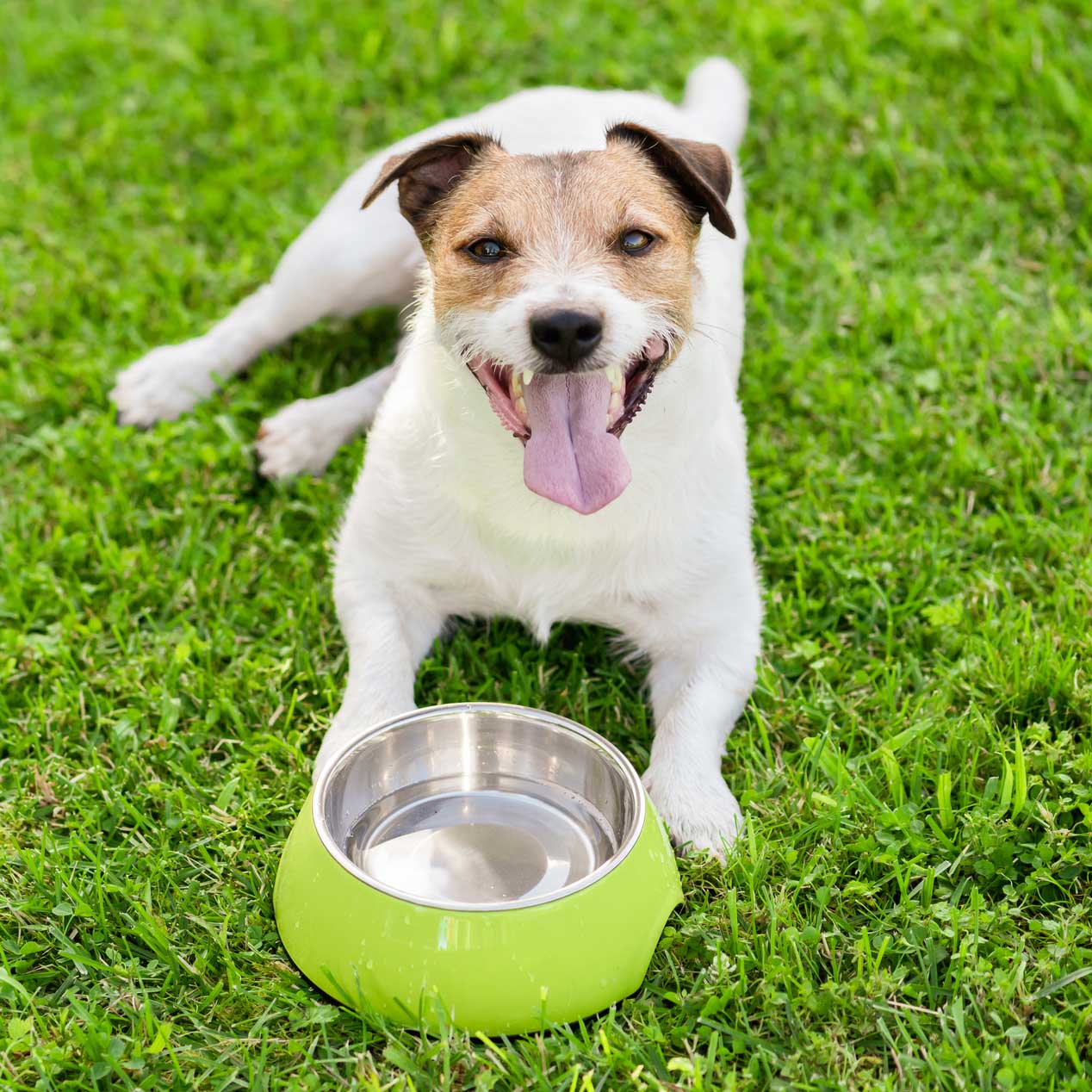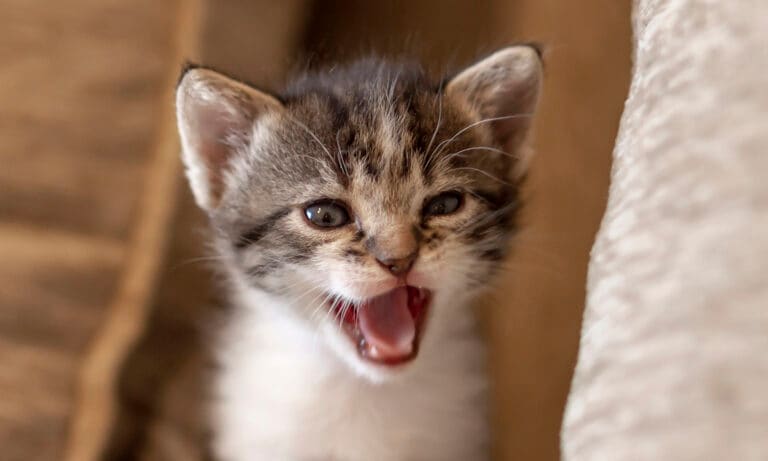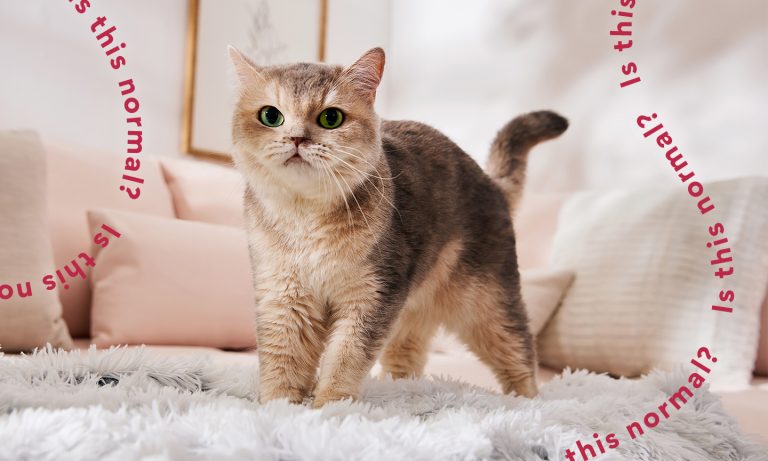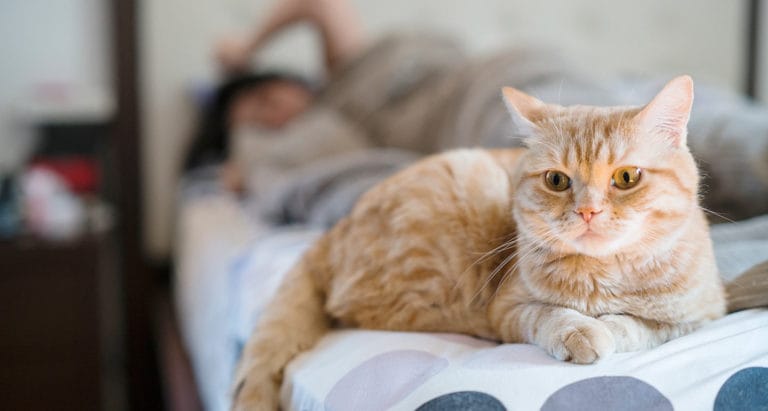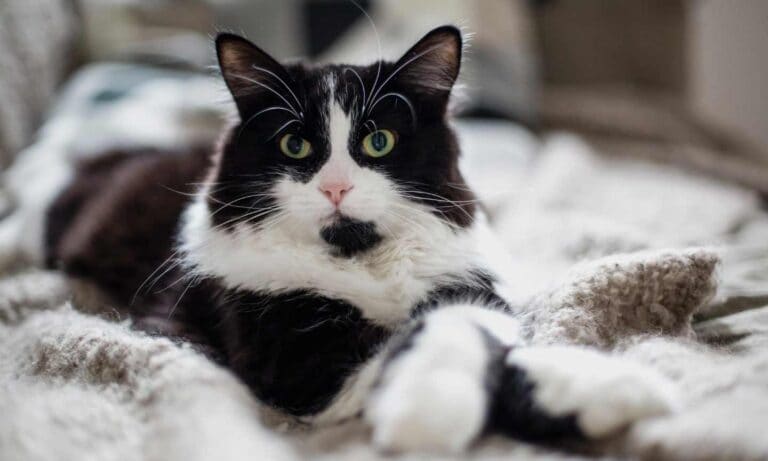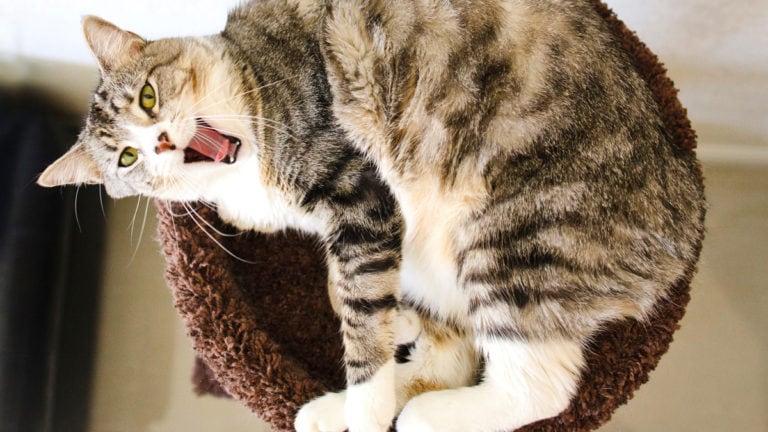Panting is a normal behavior for dogs, but if you see your cat panting, it might be cause for concern. While overheating and strenuous exercise can cause panting and rapid breathing, it can also be a sign that your cat has an underlying medical condition—or something else is wrong.
We talked to two vet experts to find out why cats pant and get their advice on what actions you should take if your cat is exhibiting concerning symptoms.
Click to jump to each section:
Common Causes of Cat Panting
While some causes may be less severe than others, it is never normal for cats to pant, according to Dr. Shelby Baden, DVM, an emergency veterinarian at the Veterinary Emergency Group (VEG) in Tampa, Florida.
“This behavior is brought on by either stress, extreme heat or a disease process,” Dr. Baden says. “Context is important, so knowing your cat’s typical behavior is key.”
Below are the most common causes of cat panting and what you should do if you notice your cat breathing abnormally.
1 They’re hot.
If your cat is panting, it could be a sign that they’re overheating.
“When cats are exposed to hot temperatures, they pant to regulate their body temperature. This is the same reason dogs pant when they are hot,” says Dr. Sara Ochoa, DVM, a veterinarian at Animal Hospital of West Monroe in West Monroe, Louisiana, and the co-founder of How To Pets.
If your cat is panting excessively in a warm environment, cool them down immediately and keep them in a cool place, Dr. Ochoa. This is important to help prevent heatstroke, which is a medical emergency.
Excessive physical activity can also increase your cat’s body temperature. If you’re playing with your cat and you notice them panting, take a break and let them settle down.
2 They feel anxious or stressed.
Cats can experience anxiety and they’re susceptible to stress, which can be caused by loud noises, new environments or separation anxiety, according to Dr. Ochoa. These emotions can be the catalyst for panting.
“Cats that are anxious or stressed may pant due to the increased breathing rate and heart rate. If you suspect that your cat is panting due to anxiety, try to remove the source of the stress and give your feline plenty of love and attention,” Dr. Ochoa says.
3 They’re in pain.
Cats are masters of disguise. They’ll do everything they can to hide the fact that they’re in pain. But if your cat is suffering from an injury, they may pant as a way to try to alleviate the discomfort.
If you notice unusual behavior in your cat, it’s best to take them for a full checkup so your veterinarian can do some diagnostic tests to uncover the cause. This may involve a physical examination as well as x-rays, depending on what your vet finds.
4 They’re overweight.
“Overweight cats may pant due to the extra weight affecting their breathing,” says Dr. Ochoa, who adds that obesity can cause pain in joints and muscles that also contributes to panting.
While there isn’t an immediate resolution for this, Dr. Ochoa recommends working toward getting your cat to a healthy weight and helping them stay active to prevent these types of issues.
5 They have respiratory problems.
Respiratory issues are common in cats, especially in shelters and multi-cat households. Acute respiratory infections, like pneumonia or bronchitis, and chronic underlying respiratory problems, like feline asthma, can cause panting in cats, according to Dr. Ochoa.
“If your cat is panting along with other symptoms such as coughing or wheezing, you should take them to the vet for a checkup,” Dr. Ochoa says.
If your cat has a respiratory problem, your veterinarian may recommend an inhaler or other bronchodilators to help open the airways so your cat can breathe easier.
But how do you know if your cat is just hot or having a respiratory issue?
“Cats who are in respiratory distress will not stop panting; cats who are trying to cool down/relax will eventually start to breathe normally again,” Dr. Baden says.
If you’re at all concerned, call your vet.
6They have anemia.
Anemia is a medical condition characterized by too few red blood cells in the blood. This affects oxygen delivery to the entire body and can cause a number of symptoms, like panting, increased respiratory rate, increased heart rate, weakness, pale gums and blood in the stool, urine and/or vomit.
The treatment for anemia depends on the cause, but if you suspect this may be the reason for your cat’s heavy breathing, take them to the vet for a checkup as soon as possible.
7 They have heartworm.
Heartworms are parasites that can affect the heart and lungs of your cat. If your cat gets infected, it can cause a heartworm disease called Heartworm Associated Respiratory Disease (HARD). HARD can cause panting, as well as wheezing, coughing, lethargy and loss of appetite.
If you notice any of these signs, get your cat to an emergency veterinarian right away, as this disease can progress and become more severe very quickly. An active heartworm infection requires veterinary care, but a heartworm preventative is the best way to reduce your cat’s risk of getting an infection in the first place.
8They have heart failure.
Congestive heart failure can also cause panting and difficulty breathing, according to Dr. Baden. This occurs when the heart can no longer deliver enough blood to the rest of the body, causing a fluid buildup in the lungs.
“This is more common in older cats and can be accompanied by other symptoms such as lethargy and weight loss,” says Dr. Ochoa, who recommends seeking help from a professional veterinarian if you suspect your cat has heart disease.
Heart failure is also more common in certain breeds, like Maine Coons, Persians and Ragdolls. So, if your cat falls into this category, you want to be extra diligent about getting them the proper care.
When Is My Cat’s Panting an Emergency?
While short-lived panting during strenuous exercise or on a particularly hot day may not be anything to worry about, it’s always a good idea to get your cat in for a checkup if you notice regular panting or abnormal panting (panting that doesn’t seem to be brought on by exercise or heat).
“It is always an emergency if your cat suddenly starts panting without any apparent reason to do so,” says Dr. Baden. “Open-mouth breathing is a strong enough clinical sign to seek veterinary care immediately in cats.”
Other signs that indicate an emergency include:
- blue or pale mucous membranes
- extreme lethargy
“Non-specific signs you may have noticed before the event include vocalization, inability to urinate, vomiting, hiding/isolating, diarrhea and anorexia,” adds Dr. Baden.
If your cat is experiencing any of the above signs, Dr. Baden recommends calling your veterinarian right away and telling them what is happening.
“Make sure your veterinarian has oxygen therapy, and if not, head to your closest veterinary ER. If your cat is open-mouth breathing, this is a medical emergency and time is of the essence,” Dr. Baden says.
More ways to keep your cat safe this summer:
Share:
